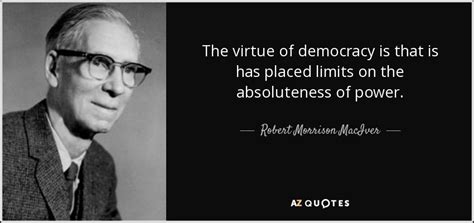A Quote by Nadine Gordimer
Time is change; we measure its passing by how much things alter.
Related Quotes
The best way to measure how much you've grown isn't by inches or the number of laps you can now run around the track or even your grade point average - though those things are important, to be sure. It's what you've done with your time, how you've chosen to spend your days, and whom you have touched this year. That, to me, is the greatest measure of success.
We are apt to think we know what time is because we can measure it, but no sooner do we reflect upon it than that illusion goes. So it appears that the range of the measureable is not the range of the knowable. There are things we can measure, like time, but yet our minds do not grasp their meaning. There are things we cannot measure, like happiness or pain, and yet their meaning is perfectly clear to us.
If we hope to stem the mass destruction that inevitably attends our economic system (and to alter the sense of entitlement - the sense of contempt, the hatred - on which it is based), fundamental historical, social, economic, and technological forces need to be pondered, understood, and redirected. Behavior won't change much without a fundamental change in consciousness. The question becomes: How do we change consciousness?
It's amazing how much information is coming at us most of the time through technology, the media and the busyness of the world around us. I've decided that the world probably isn't going to change, so I have to change. I'm learning how to keep my mind on what I'm doing, rather than thinking about several things at once or what I want to do next.
I am always struck by how difficult it is for people to see how much cruelty they are bringing not only upon animals but upon themselves and their loved ones and other people, how much we are screwing up the planet, how much we are hurting our own health, how hard it is to change all that, how eager people are to make a buck at everybody else's expense - all those things are discouraging.
Successful businesses measure and count things. I think that's a safe assumption on top of which we can drop the following hypothesis: unsuccessful business either measure nothing, the wrong things, too many things, or finally, they measure the right things but they don't communicate the measurements efficiently.





































